Introduction
Keeping your home warm and energy efficient during cold weather doesn’t just depend on having the latest equipment; it also requires smart care and regular attention. By thoughtfully maintaining your system and considering upgrades like heat pump installation, you can maximize both its lifespan and its performance. A strategic approach not only protects your investment but can also help lower your energy bills and ensure consistent comfort throughout the winter months.
In this comprehensive guide, you’ll learn essential steps to extend the life of your heating system. Whether you’re caring for a high-efficiency furnace or thinking about a new heat pump installation, these practical tips will support both immediate comfort and long-term reliability. Dive into these actionable steps below to keep your heating system running smoothly year after year.
Schedule Regular Maintenance
Booking annual check-ups with a qualified HVAC specialist is one of the best ways to protect your heating system. Regular inspections catch emerging problems early, long before they become serious and expensive. Technicians will clean components, inspect safety controls, and lubricate any moving parts. This thorough attention reduces the risk of surprises during peak winter months and can nearly double the system’s operating life. According to Bob Vila, a well-maintained heating system typically lasts 15 to 20 years, compared to just 7 to 12 years for neglected units.
Replace Air Filters Consistently
Changing your air filters regularly is a simple yet effective step with significant benefits. Dirty or clogged filters make your heating system work harder—using more energy and increasing wear on crucial components. For most homes, filters should be replaced every 30 to 90 days, depending on usage and the presence of pets or allergies. Not only does this help extend your system’s lifespan, but it also improves indoor air quality and supports better overall health. The U.S. Environmental Protection Agency (EPA) recommends regular filter changes as part of comprehensive indoor air quality management.
Keep Vents and Ducts Clear
Airflow is the lifeblood of any heating system. Blocked vents or dirty ducts can cause the system to overheat or work inefficiently. Make it a habit to keep furniture, curtains, and other objects well clear of your outlets and vents. Ductwork should be professionally cleaned every few years to remove dust, pet hair, and allergens. Proper airflow ensures even heating and prevents premature wear on your system, making your entire home more comfortable.
Install a Smart Thermostat
Smart thermostats offer advanced temperature management and can optimize when and how your heating system runs. Many models learn your family’s schedule, adjusting temperatures automatically for comfort and energy savings. Some devices offer detailed usage reports, enabling you to identify and reduce unnecessary heating and pinpoint inefficiencies. Over time, this reduced workload extends the life of your heating system and helps lower energy bills.
Utilize Ceiling Fans
Ceiling fans aren’t just for summer; they can play a key role in winter as well. By switching your ceiling fans to run clockwise at a low speed, you push warm air down from the ceiling and distribute it more evenly throughout your rooms. This makes heating more efficient, allowing you to lower your thermostat a degree or two while maintaining the same comfort level. Small changes like this can add up to big savings over time.
Maintain Adequate Insulation
Proper insulation makes a huge difference in heating efficiency. Insulating attics, walls, and floors prevents heat loss, allowing your system to cycle less frequently. According to the U.S. Department of Energy, upgrading your home’s insulation can trim heating bills by up to 20%. Evaluate your home’s insulation, especially in older houses, and consider improvements if your heating system seems to run constantly or your home has persistent cold spots.
Monitor and Adjust Thermostat Settings
Keep your thermostat at a consistent, energy-efficient temperature. The U.S. Department of Energy recommends 68°F during the day and a lower setting at night or when away from home. Frequent, drastic adjustments can cause your heating system to cycle on and off more often, increasing the risk of breakdowns. Using programmed or gradual adjustments instead eases the workload and preserves long-term performance.
Address Repairs Promptly
Addressing small issues quickly can prevent larger, more expensive problems down the road. Listen for unusual noises, odd smells, or changes in heating performance, and call a professional as soon as possible. Timely repairs catch worn parts before they cause system-wide damage, potentially saving you significant costs and extending the overall lifespan of your system.
Consistently following these steps will help you maximize the benefits of your home heating system. Regular maintenance, smart upgrades, and timely attention to minor issues are key to maximizing efficiency and longevity, ensuring your family stays warm and comfortable for years to come.
Summary
Consistent maintenance and proactive care are the cornerstones of a long-lasting and efficient home heating system. By taking simple steps like regularly replacing air filters, keeping vents clear, and scheduling annual professional inspections, you can significantly extend the life of your equipment. Incorporating smart technology, such as a programmable thermostat, and ensuring your home is well-insulated further maximizes your system’s performance and reduces your energy bills. Ultimately, a strategic approach to heating system care protects your investment, provides reliable comfort, and helps ensure your home stays warm and efficient for many winters to come.

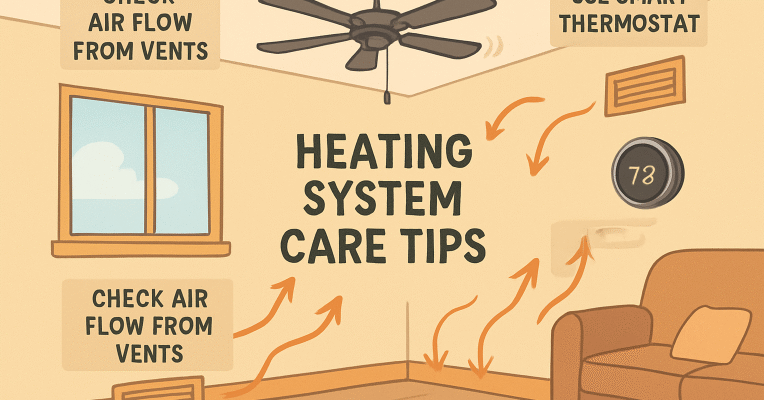
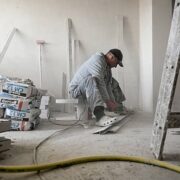


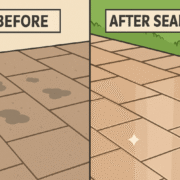
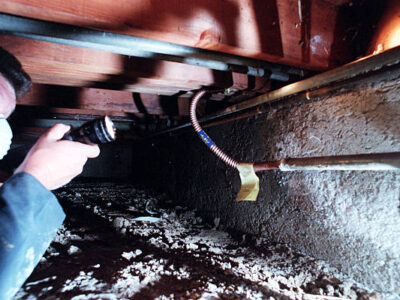
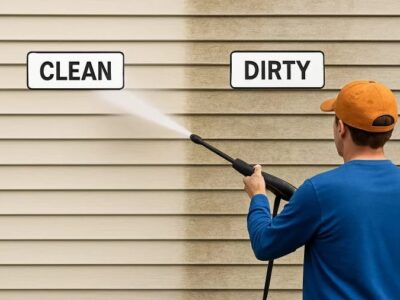






Comments